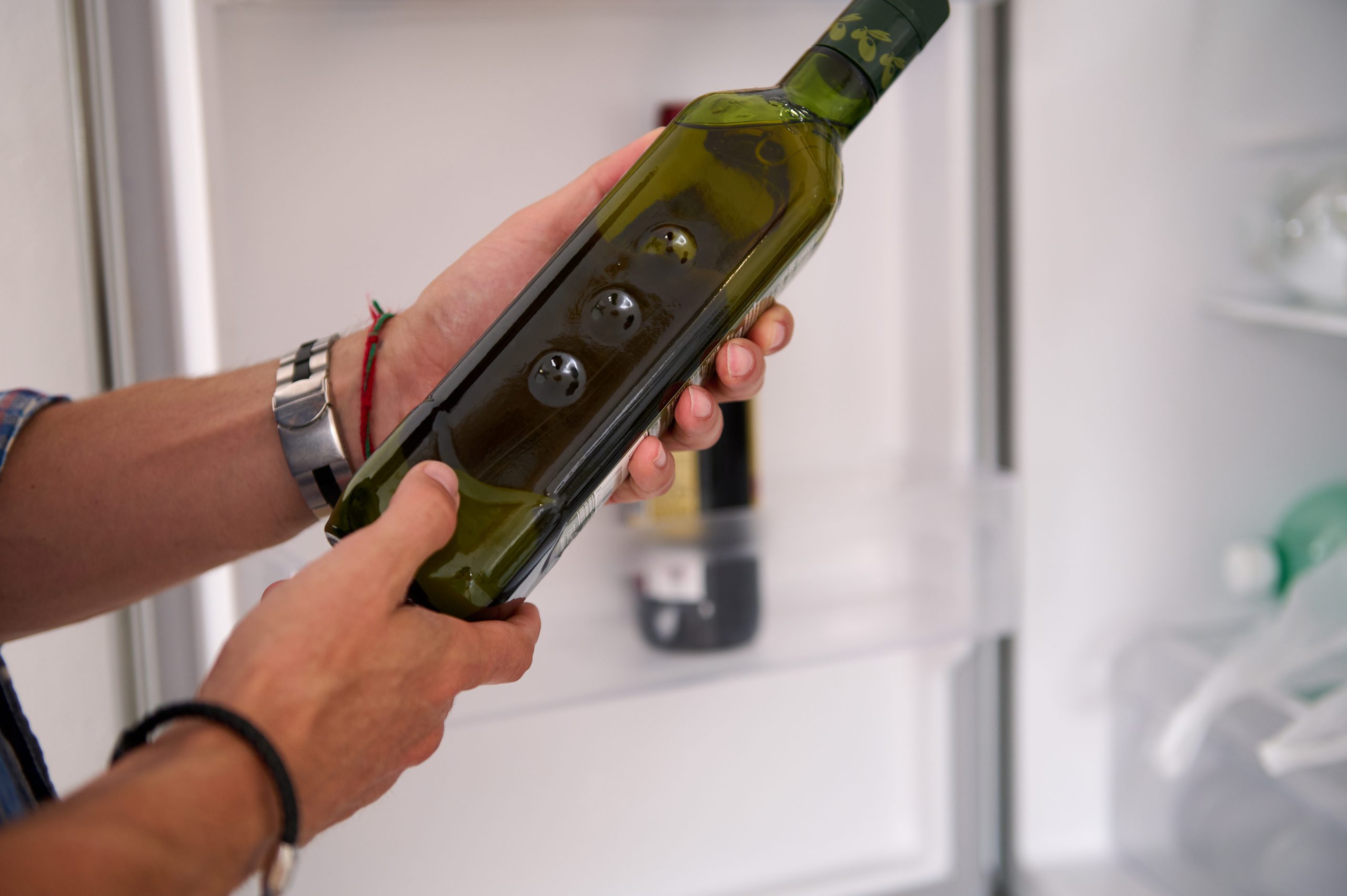
People often ask about Extra Virgin Olive Oil (EVOO) and why it will gel if placed in the refrigerator.
The answer is that EVOO will generally gel in the refrigerator due to its chemical composition, which includes a variety of fatty acids, particularly saturated and monounsaturated fats. When the temperature drops, as it does in the refrigerator, these fatty acids begin to crystallize and cause the gelling.
But what about when EVOO does not gel in the refrigerator? Some may feel this automatically indicates an EVOO might not be genuine.
It’s not easy to know the exact composition of the oil for certain without an accurate lab check report. :But there can be several explanations.
If a high-quality Extra Virgin Olive Oil does not gel in the refrigerator, it is important to consider all these possible explanations. Looking a little deeper, EVOO generally naturally contains between 65% and 75% monounsaturated fatty acids. The remaining part typically consists of those saturated and polyunsaturated fats mentioned before. But the exact composition does vary, and depends on many factors, including rainfall and the overall climate, the cultivar, if it is filtered or not, and the harvest time.
So it absolutely can happen that in some years, the same plants produce olives with higher percentages of fatty acids compared to other years, which will affect the gelling qualities in a cold environment
Remember:.
So make sure to obtain your EVOO from a trusted source, and gauge the most important quality first: taste. High quality EVOO is unmistakable!